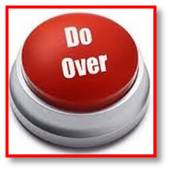Monday Author: Susanne Skinner
It’s graduation time. The Caron family is having a bit of a lull this year because nobody is graduating — none of our children is exiting the halls of higher learning and entering the real world.
 It’s a short lull –- we’ll be back in the game next year. This year I am going to other people’s graduations. I’m the one showing up for the BBQ with the gift and the good wishes, not the one counting days until tuition is due, shopping for dorm or first apartment supplies and preparing “the talk” for the departing child.
It’s a short lull –- we’ll be back in the game next year. This year I am going to other people’s graduations. I’m the one showing up for the BBQ with the gift and the good wishes, not the one counting days until tuition is due, shopping for dorm or first apartment supplies and preparing “the talk” for the departing child.
I’ve been thinking a lot about “the talk” because I’ve been wondering what I’d say. It’s a dress rehearsal for next year. This thinking stems from two very different inspirations, both of them books. The first is Like a Virgin written by Sir Richard Branson wherein he profoundly states “If I had to do it all over again, I’d do it all over again.” The second is The Knowledge – How to Rebuild Our World from Scratch, profoundly written by Lewis Dartnell and recommended in my book club.
Dartnell, a scientist and researcher for the UK Space Agency, looks at what would happen if a cataclysmic event reduced earth to a few survivors tasked with rebuilding civilization. It’s a how-to book without internet, power, or resources of any kind. It makes you think about every single aspect of your life from how to make soap to overcoming hopelessness. No survivor-style television show here –- this is about life starting over.
This concept is nearly impossible to wrap my brain around. I invite you to read this book and think on it. Because you believe whatever information you need can be found whenever you need it, I want you to be stunned into reflecting on the world you live in and figure out how to preserve it.
Dartnell’s book is not an easy read. Its fictional reality and it’s scary. Those who are left behind have only one job –- rediscover the complex processes that make up our world and rebuild it. They are given a second chance in how they go about it, learning from the words of physicist Sir William Crookes who warned “we are drawing on the Earth’s capital, and our drafts will not perpetually be honoured.”
Lesson: I want you to understand that earth’s resources are finite and contribute to preserving and using them wisely.
Sir Richard’s book is like his blog –- light-hearted and entertaining. He’s not a great writer, but he makes up for it with his entrepreneurial spirit and radical thinking. There are no business secrets here, but he offers reflections on learning lessons rather than counting failures. He encourages us to be fearless and follow our dreams, and I want you to do both of these things.
Think of Sir Richard as a motivational speaker. He points out that not everyone is technically minded, destined to start a company and shake up the world, but everyone has opportunities to find what they love and pursue it with passion. Big lesson here: do what you love, love what you do.
Both authors offer wisdom and encouragement and therefore both provide resources for you who are graduating and for the manifesto I will deliver to next year’s graduate.
I believe in do overs because at my age that’s what we think about –- what we would do over if given the chance. I have data – Big Data – to use when we talk about what I’d do differently. Hopefully I can share this data without beginning a single sentence with “when I was your age.” These words jump-start selective hearing between the ages of 18 and 21. At this age there is no guarantee you want or need to hear what I have to say. But I will be here when you are ready and I hope you will ask lots of questions. I want my answers to encourage you to design a full and meaningful life for yourself.
Sociology professor Anthony Campolo describes a survey in which 50 people over the age of 95 were asked “If you had to do it over again, what would you do differently?” There were many answers, but the top three were: reflect more, risk more and do more things that would live on after they were gone.
This example underwrites the sentiment of Richard Branson, encouraging us to measure our lives by risks taken rather than the yardsticks of success or failure. Although there isn’t much retrospect in the life of a 21 year old I suggest you regularly reflect on your life and ask how you are making a difference in the lives of others. Do a little course correction and continue to challenge yourself. After all, you are the future everyone is talking about.
Enter the working world with the dream of making it a better place. There is power in the here and now. Use it to find things you care about and imagine what you can do with them to create a positive and lasting impact. Our planet needs you and your ideas.
No Regrets
It’s impossible for you to look forty years ahead but very possible to look ahead one step at a time and engage in a little reflection as you go. It creates a good system of checks and balances and encourages change. Regrets are mostly for the things you didn’t do so allow yourself to take risks and chances – which by default will allow you to fail now and then. Lesson: Failure is never a bad thing. Not trying –- that’s the bad thing. Find a word to replace failure and live courageously.
It’s time for you to go; with a preview of conversations we will have in years to come about what matters along the way:
- Pay attention
- Listen
- Love your family
- Love yourself
- Know your roots
- Learn to cook
- Read
- Give back
- Work someplace awesome
- Call your Mom
These are not the best years of your life, but they are a great jumping-off point for the places you will go and the accomplishments that will define your journey.
Search for and discover yourself. Celebrate what you find.


